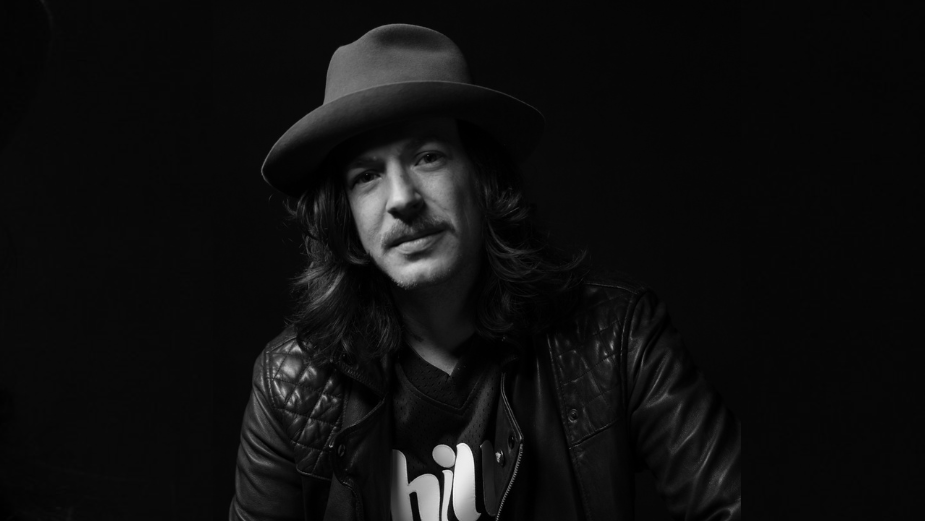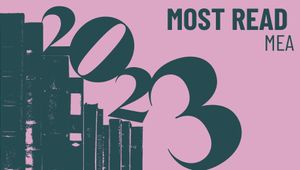
The Directors: Justin Kramer

Justin Kramer is an American filmmaker and artist. His career started in New York City where he formed Elwood Gentry Productions and worked on projects for HBO, MTV, CNN, VH1, and AMC among others.
His photography work has been featured at The Museum of Contemporary Art, Chicago, as well as lectured at Harvard University on documentary filmmaking. In 2009, Justin moved to Qatar to join the Doha Film Institute where he produced and mentored numerous workshops and programs resulting in some of the first films and filmmakers from Qatar to gain international recognition.
Since, Justin has developed The Film House. The Film House is a first of its kind in Qatar, producing documentaries, commercials and design at a world-class level for clients like VICE, DAZED, Levi's, Qatar Airways, Chevrolet, PBS and BBC.
Name: Justin Kramer
Location: Doha, Qatar
Repped by/in: The Film House
LBB> What elements of a script sets one apart from the other and what sort of scripts get you excited to shoot them?
Justin> The more creative control I have over a script, the more exciting it is. I love to work on ideas that are born from my own imagination, and I can explore themes or styles that I’ve not had a chance to make before.
LBB> How do you approach creating a treatment for a spot?
Justin> Each spot is different. If coming from an agency or client who already has a solid brief, I try to do as much research on the brand or product as possible. This gives me a better understanding of the true intention and goals of the company. In other cases, I will draw inspiration from the location or identity or the history of the brand. There is no ‘template’ for creating the treatment, but it always must start with a seed of inspiration.
LBB> If the script is for a brand that you're not familiar with/ don’t have a big affinity with or a market you're new to, how important is it for you to do research and understand that strategic and contextual side of the ad? If it’s important to you, how do you do it?
Justin> This is VERY important to me. I want to know the brand as well as possible. I want to direct ads that reflect not only their core business and principles but also reflect my own moral standards and style.
Most of the research can be done online but if and where possible, I like to visit the offices of the company, shops where the products are sold, or conduct informal interviews with stakeholders and employees to better understand the brand.
LBB> For you, what is the most important working relationship for a director to have with another person in making an ad? And why?
Justin> This is very difficult to answer. Every relationship is important to me. From the producer to the client to the production assistants that are on set. When we share a common goal, have harmony on set, and trust and respect one another, the results will always be the strongest.
If I was forced to pick, I would say the relationship with the DOP. The director has a vision but that collaboration with the DOP is what will bring that vision to life. Being on the same page is very important but I always invite creative discussions that can add to the vision or elevate to new heights because of the expertise of the man or woman behind the camera.
LBB> What type of work are you most passionate about - is there a particular genre or subject matter or style you are most drawn to?
Justin> Honest stories are most appealing to me. I love documentary work and learning new points of view. Unfortunately, documentary is not the most commonly used genre for ads.
If given the choice of genre, I would pick documentary even though my strongest work has been in the fashion film world.
LBB> What misconception about you or your work do you most often encounter and why is it wrong?
Justin> In Qatar, there is an obsession with ‘international directors’. Clients seem to have this mindset that if you are based in Qatar, you aren’t up to the standard of someone from Europe or the United States. This always makes me chuckle because I am in fact an American director. I just so happen to live in Qatar.
LBB> What’s the craziest problem you’ve come across in the course of a production – and how did you solve it?
Justin> Every production has some kind of crazy problem. In Qatar, the biggest problems we encounter are weather related. Whether it’s 50 degrees celcius outside or a massive sandstorm incoming or even the very rare rainstorm… We’re always working to find solutions. It’s a team effort and we look after one another to ensure a safe shoot that we can all return home from at the end of the day.
LBB> How do you strike the balance between being open/collaborative with the agency and brand client while also protecting the idea?
Justin> This is an ever-evolving process. Managing different personalities and egos is the most challenging part. I will always speak with the agency or client throughout the ideation process and all the way through delivery of the final film.
When you are transparent and honest with the client or brand, things are best for everyone involved. You can push for an idea that you feel strongly about and continue to show them what you envision BUT, at the end of the day, it’s their brand or product or image that you are responsible for and they should have the final say in that. (There’s always a director’s cut anyway.)
LBB> What are your thoughts on opening up the production world to a more diverse pool of talent? Are you open to mentoring and apprenticeships on set?
Justin> This is something I feel very strongly about. Being an ex-pat in Qatar comes with a moral responsibility to help grow the industry and nurture talent.
When I first came to Qatar in 2009, I was involved in the local film institute. I ran workshops for local filmmakers and helped to produce some of the first short films to ever travel to international film festivals. I also do guest speaking and workshops at universities in Qatar. We have a great internship program, and we always invite students, graduates, and just about anyone who is interested to learn more about film to attend our shoots.
When my time in Qatar comes to an end, I want to leave a legacy behind and continue to see the industry thrive here.
LBB> How do you feel the pandemic is going to influence the way you work into the longer term? Have you picked up new habits that you feel will stick around for a long time?
Justin> Zoom meetings are the best. Being able to jump online with a client or agency at any time without having to battle through traffic etc to have a quick meeting or problem solve is a blessing. We can have more open, ongoing discussions and still have productive days.
LBB> Your work is now presented in so many different formats - to what extent do you keep each in mind while you're working (and, equally, to what degree is it possible to do so)?
Justin> Knowing the format is very important throughout the entire process. For me though, the most important thing is the performance. I try to get my head around formats, aspect ratios, platforms, etc in the preproduction process and have that all mapped out, so I don’t have to think too much about it during the shoot. Instead, I can stay focused on the things that matter most about storytelling.
LBB> What’s your relationship with new technology and, if at all, how do you incorporate future-facing tech into your work?
Justin> My relationship with new technology is still in its infancy. I don’t consider myself one of those ‘film purists’ but I do tend to lean toward traditional storytelling currently. At 40 years old, I am certainly not a ‘techno grandpa’ yet but sometimes I do feel that way. The evolution of technology is happening so fast that it makes my head spin at times.
But experimenting and exploring new possibilities will never get old.
LBB> Which pieces of work do you feel really show off what you do best – and why?
Justin> In this current phase of my work, I would say my work for hotel brands shows off my best work. I have built a fantastic relationship with brands that trust me and allow me the freedom to get wild. I’ve directed several films for Mondrian Doha and SLS Dubai that have travelled well, picked up many international awards, and still excite me when I watch them.
The process of making the films is a really immersive one. It starts with visiting the property. That is always the most important thing for me. I like to see all of the spaces and allow them to speak to me in terms of the colour palette, shapes, structure, and personality. I take extensive photos and then hand illustrate the frames in my imagination.
I have a solid plan in place for the wardrobe, hair, makeup, and attitude of the space. Once I have that, I build a team of creatives that I know can bring that to life.
The results are often more exciting than even I could have imagined.












